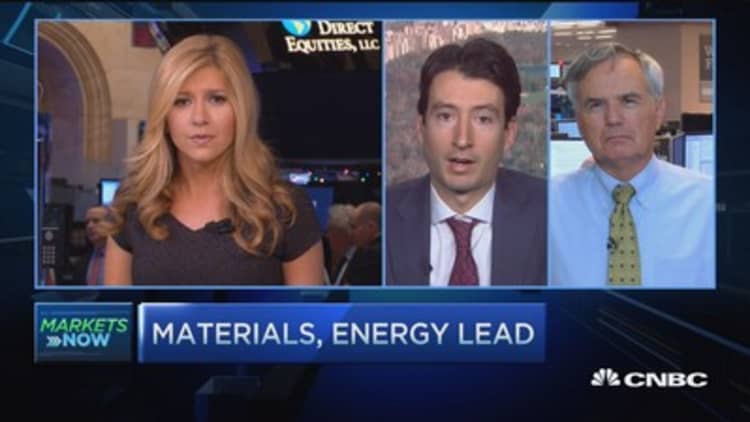
As rumors of a mega-deal brew between Dow Chemical and DuPont, experts remain positive on what this potential $120 billion merger says about the direction of the market.
JP Morgan strategist Ben Mandel told CNBC's "Squawk on the Street" his view is that the U.S. economy is fundamentally sound and still in midcycle.
"Overall, M&A activity is not signaling that we're going late. In fact, you look at other measures, the output gap of the U.S. economy is pretty much neutral right now," he said Wednesday. "Consumers are not showing many signs of exuberance in the sense that savings rates are near 20-year averages."
Moreover, Mandel said that there's no sign of the telltale indicator of the end of a cycle: a turn in business sentiment.
Mandel added that he's not necessarily concerned about junk bonds or corporate credit as much as because the upcoming Fed action will take place on the backbone of this "sound" economy.
"I think if anything, the risk when it comes to the Fed is we're myopically honing in on the liftoff date and myopically honing in on the path of rates in 2016. In fact, I think this is a yearslong process of normalization … so to put it in perspective, we're just halfway through the process," he said.
Despite deviations, Mandel contended that the U.S. market could see four rate hikes in 2016 although the market is still pricing just two.
"So you things like the oil prices, things like the exchange rates, those are not binding constraints for U.S. growth. So I think you want to be selective but with the overall narrative being positive," he said.

However, LPL Financial Chief Investment Officer Burt White said crude oil has actually been a big detractor and a big headwind for stocks but he does think the dollar will begin to stabilize next year.
"As you see the dollar stabilize, it will begin to stabilize commodity prices. That's going to be great news for stocks because that's going to also put a real emphasis on and allow for extra capital spending," he told CNBC's "Power Lunch" Wednesday.
White emphasized that when it comes to the looming rate hike, it's not about the fact that it's happening so much as the the slope of the hike.
"What we expect to happen next week is the Fed is going to clarify that slop," he said. "We think it will be a lot closer to what the market things. If you do get that and the gap begins to decline, we think it will take a lot of steam out of the rising dollar."




